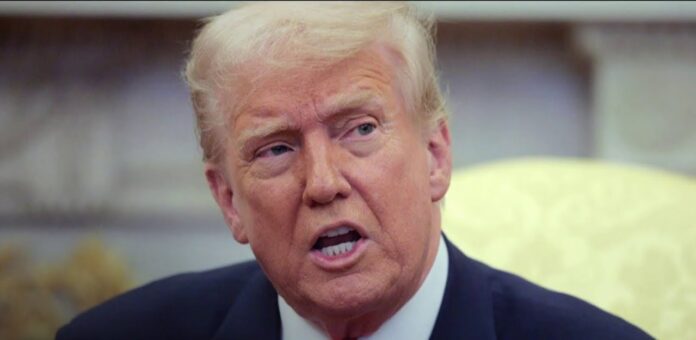Trump’s sudden departure from the G7 summit in Canada shocks world leaders as Israel’s attacks on Iran intensify.
President Donald Trump cut short his appearance at the G7 summit in Canada on Monday, leaving world leaders stunned as Israel’s escalating military campaign against Iran pushed the region to the brink of war. The summit, meant to foster diplomatic unity on pressing global issues, was thrown into chaos as Trump ordered his team to exit ahead of critical meetings on Ukraine and trade.
Speaking at the scenic mountain resort of Kananaskis, Alberta, Trump justified his departure with a stark warning on social media: “Everyone should immediately evacuate Tehran!” The U.S. president claimed Iran had ignored multiple chances to de-escalate its nuclear programme, blaming the regime for provoking Israel’s airstrikes, which began four days earlier.
“We gave them 60 days,” Trump told reporters. “They didn’t act. They’re not winning this war—and they need to talk now, before it’s too late.”
The G7 summit had opened with cautious optimism. Canadian Prime Minister Mark Carney, hosting the gathering, declared the moment a “turning point in history.” British Prime Minister Keir Starmer, French President Emmanuel Macron, German Chancellor Friedrich Merz, Italian Premier Giorgia Meloni, and Japan’s Shigeru Ishiba had all arrived hoping to present a united front on everything from climate change to the wars in Gaza and Ukraine.
But Trump’s isolationist posture was evident from the start. He railed against Russia’s expulsion from the group in 2014, calling it a mistake, and even floated the idea of inviting China into the fold. These remarks rattled the other leaders, many of whom had convened a private huddle late Sunday to pre-emptively coordinate their messaging on Iran.
Germany’s Merz later told reporters that a final communique would insist “Iran must under no circumstances be allowed to acquire nuclear weapons-capable material.” That position found agreement in a rare joint G7 statement issued Monday night, which called for a ceasefire in Gaza and reiterated that Iran “can never have a nuclear weapon.”
Still, Trump showed little appetite for collective diplomacy. He sidestepped talks on Gaza, Ukraine, and global trade. When asked whether the U.S. might support Israel with military force, he replied cryptically, “I don’t want to talk about that.”
Despite his early exit, Trump found time for side conversations with Macron, Merz, Ishiba, and European Commission President Ursula von der Leyen. Talks with Ukrainian President Volodymyr Zelenskyy and Mexican President Claudia Sheinbaum, originally scheduled for Tuesday, were cancelled. Zelenskyy said he had hoped to finalise a defence package purchase from the U.S.—a deal now left hanging.
The G7’s Canadian host remained diplomatic. “I’m very grateful for the president’s presence and I fully understand,” Carney said, though his face betrayed unease.
The summit’s symbolic value—once rooted in consensus—was now overshadowed by one man’s abrupt exit and a fresh warning of military confrontation. As Trump boarded Air Force One, his parting message on Truth Social read: “AMERICA FIRST means many GREAT things, including the fact that, IRAN CAN NOT HAVE A NUCLEAR WEAPON. MAKE AMERICA GREAT AGAIN!!!”
Whether his hardline posture deters further Iranian escalation—or plunges the region deeper into war—remains to be seen. What is clear is that the G7, once designed for shared leadership, is again reckoning with America’s unpredictable commander-in-chief.
